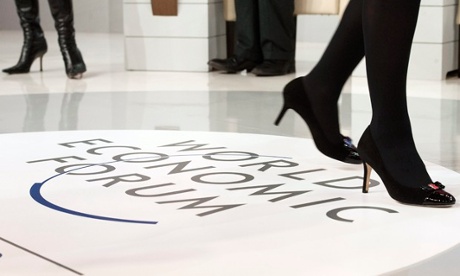
As government representatives, business leaders, philanthropists and academics head to Davos, Switzerland, for the World Economic Forum 2015 meeting, it’s time to ask the perennial question: what will it actually accomplish?
For 45 years, the meeting has provided an informal space for leaders to meet with each other, discuss the pressing issues of the day and ascertain if they can help improve the situation to the benefit of all. The concept is simple: from a diverse gathering of leaders, innovations for the global good can be born.
The idea has borne fruit in the past. In the late 1990s, for example, there was great concern that children in rich countries had access to newer, more expensive vaccinations, while children in poor countries did not. The idea emerged for an alliance of relevant organizations, foundations and companies to focus their combined financing firepower to get vaccines to children in poorer countries. The Global Alliance for Vaccinations and Immunisation, launched at Davos in 2000, has since disbursed over $7bn to 70 countries to scale up vaccinations.
Another example that underlines the Davos spirit of “entrepreneurialism in the global public interest” is the Global Fund, which was conceived at the 2002 meeting as a partnership between governments, civil society and businesses to accelerate the end of Aids, tuberculosis and malaria. By 2012 the Global Fund had deployed about $23bn to support programmes in over 150 countries. It has become the main funding platform to fight these global diseases.
More recently, there has been growing interest at Davos for exploring how public-private collaboration can help governments address systemic or chronic global challenges. I’m referring to big-ticket issues – such as closing the jobs gap, promoting inclusive growth, achieving food security or managing our common environmental resources – on which traditional intergovernmental negotiations seem to falter.
Take climate change, for example. In 2013, United Nations Secretary-General Ban Ki-moon invited informal collaboration with the World Economic Forum to help promote public-private cooperation on climate change. Specifically, he wanted to see whether the meeting at Davos could identify five or six global action areas that could help reduce emissions or improve climate resiliency.
Guided by the world’s best climate scientists and economists, Davos 2014 gave an unprecedented focus to climate change. Global public-private alliances in areas such as sustainable agricultural commodity sourcing to reduce deforestation, addressing climate risk in financial systems, improving corporate carbon disclosure in financial reporting, accelerating energy efficiency and scaling carbon pricing found their feet at Davos last year.
Many of these coalitions grew rapidly through 2014 in time for Ban Ki-moon’s Climate Summit in September. One success story is the swift growth of collaboration to reduce deforestation from palm oil. In autumn 2013, less than 5% of the global palm oil trade was committed to zero-deforestation principles. By the autumn of 2014, major companies such as Wilmar, Cargill and Bunge – together representing an estimated 96% of global palm oil trade, according to the Climate Advisers think tank – had adopted no-deforestation sourcing policies for palm oil.
Furthermore, these and many other companies came together with governments, NGOs and indigenous peoples’ groups at the Climate Summit to launch the New York Declaration on Forests – a commitment to at least halve the rate of loss of natural forests globally by 2020 and to end natural forest loss by 2030.
These are outcomes the global climate negotiations could not have triggered. They also create a sense of momentum, which in turn creates a more positive mood for government negotiations. At Davos this year, the French government is encouraging more informal public-private collaboration to fight climate change, as part of the path towards the Paris climate summit.
This evolution in what Davos does, and – more importantly – what the international community increasingly has been asking Davos to do, has prompted an evolution in the World Economic Forum’s strategy.
This year, the forum is committed to providing an impartial and trusted space for collaboration on 10 of the world’s most pressing global challenges (pdf), including – but not limited to – climate change. The hope is that this will increase understanding of these key issues, as well as identify and catalyse innovative new solutions through public-private cooperation.
In an increasingly complex world, fraught this year it seems with a zeitgeist of uncertainty, leaders must come together and focus on the long-term impact they can make in addressing our global challenges. We convene in Davos to do just that.
More from Davos 2015:
• ‘It is profitable to let the world go to hell’
• From water to weather: where to make money in sustainability
This Davos coverage is funded by The B Team. All content is editorially independent except for pieces labelled “brought to you by”. Find out more here.
Join the community of sustainability professionals and experts. Become a GSB member to get more stories like this direct to your inbox.

